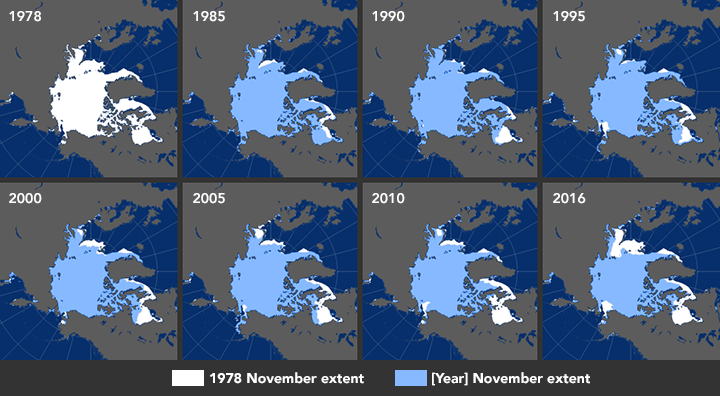The Arctic has long been a barometer for climate change, and recent observations show that Arctic sea ice levels have plummeted to record lows. This alarming trend unveils a multitude of implications for both the environment and the global ecosystem. Understanding the nuances of these changes requires delving into the interplay of natural cycles, anthropogenic influences, and long-term climate dynamics.
First and foremost, the decline in sea ice extent is attributed to a combination of warming temperatures and shifting weather patterns. The Arctic region is warming at an accelerated pace compared to other parts of the globe, often referred to as polar amplification. This phenomenon leads to a vicious cycle where diminishing ice cover results in less sunlight being reflected back into the atmosphere, further exacerbating warming. Since 1979, satellite data has illuminated a stark downward trajectory in sea ice coverage, with the summer melt reaching unprecedented levels.
The impact of dwindling sea ice is profound, affecting not only wildlife but human populations as well. Marine species such as polar bears and seals rely on sea ice for hunting and breeding. As their habitat diminishes, their survival is jeopardized, highlighting the interconnectedness of these fragile ecosystems. Furthermore, indigenous communities that depend on the sea for sustenance face cultural and economic upheaval. The changes are not merely ecological; they bear cultural significance, as traditional practices are deeply intertwined with weather patterns and natural cycles.
In addition to biological ramifications, record low sea ice levels carry geopolitical implications. The Arctic region is becoming increasingly accessible for shipping routes and resource extraction, prompting a race among nations to stake claims in this rapidly changing landscape. Melting ice exposes vast reserves of oil and natural gas, igniting concerns regarding environmental degradation and ecological disruption. The quest for resources in this sensitive area raises ethical questions about stewardship versus exploitation.
Furthermore, the ramifications of reduced sea ice extend beyond the Arctic itself. Altered weather patterns can influence climate systems across the globe, leading to extreme weather events, such as intensified storms or prolonged droughts. The interconnectedness of global climates underscores the need for comprehensive research and international cooperation in addressing these pressing issues.
In light of these developments, it is imperative for policymakers, scientists, and communities to engage in informed discussions about the future of the Arctic. Proactive measures must be undertaken to mitigate climate change, preserve ecosystems, and respect the rights of indigenous peoples. The time is now to comprehend the urgency of the Arctic’s plight and the collective responsibility to safeguard one of the planet’s last frontiers.
